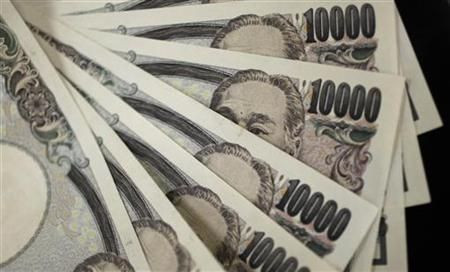Japan’s Growth Deceleration: Market Players Call For Additional Economic Measures

With the Bank of Japan deciding to keep its monetary policy unchanged, investors feel that there is an urgent need to take measures for enhancing the growth potential of the economy.
After its policy decision meeting Friday, the central bank said that its board decided to keep the rates at between zero and 0.1 percent.
Last month, the BoJ announced stimulus measures in an attempt to rejuvenate the country’s economy. This increased the size of its asset purchases by 10 trillion yen ($127 billion) to 80 trillion yen. The central bank decided that the increased amount would be used for purchasing the treasury discount bills and Japanese government bonds.
However, the central bank maintains that the concerns about the condition of the global economy persist, especially because of the debt burden faced by the euro zone. Earlier this week, the BoJ indicated that the general business conditions in the manufacturing sector in Japan worsened in the quarter ending Sept. 30, indicating that the country’s economy continued to be affected by the weakening of exports due to the soft global demand. According to the data released by the central bank Monday, the Tankan large manufacturing index dropped to minus 3 in the quarter, down from minus 1 in the April-June quarter.
Last month, Japan reported a rise in trade deficit in August compared to that in July with a decrease in both exports and imports. The Finance Ministry data showed that the country recorded a 754.1-billion yen ($9.62 billion) trade deficit in August, up from 517.4 billion yen deficit in July.
Exports dropped 5.8 percent to 5.05 trillion yen from a year earlier, indicating the soft global demand. Imports fell 5.4 percent to 5.8 trillion yen showing the weak domestic demand.
There was a slump of 22.9 percent in exports to the European Union compared to the previous year. While the exports to China dropped 9.9 percent, the same to the U.S. rose 10.3 percent. The continuing debt crisis in Europe and the strength of the Japanese yen have hurt the demand for exports, the key driver of Japan's economy.
Japan's economic growth slowed down in the April-June quarter compared to that in the first three months of the year, indicating that the country was losing growth momentum. Japan's economy grew at 0.3 percent in the second quarter, down from 1.2 percent in the first three months of the year.
Market players sense that more measures, other than the currently available stimulus, will be required to revive the growth momentum. “As such, we think the next move will be to increase the funds available to support lending to fast-growing sectors rather than to add again to outright asset purchases so soon after last month’s move,” David Rea, an economist at Capital Economics, said.
© Copyright IBTimes 2025. All rights reserved.





















